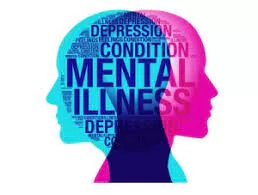A groundbreaking study published in Rheumatology has uncovered a distressing correlation between autoimmune disorders and mental health conditions, shedding light on the silent struggle faced by millions worldwide.
More than 50% of individuals grappling with autoimmune diseases also battle with depression and anxiety, the research reveals. Despite the prevalence of these comorbidities, many individuals remain undiagnosed and untreated for their mental health issues.
The study, led by Melanie Sloan, PhD, a research associate at the University of Cambridge, surveyed nearly 1,900 individuals with autoimmune disorders to assess their neurological and psychiatric symptoms. Shockingly, 55% reported experiencing depression, 57% reported anxiety, 89% reported severe fatigue, and 70% reported cognitive dysfunction such as memory issues.
“These rates far exceeded our expectations and underscore the urgent need for greater awareness and intervention,” Dr. Sloan remarked. “Many individuals suffering from autoimmune diseases are grappling with debilitating mental health challenges in silence, fearful of stigma and unaware of available support.”
Compounding the issue, more than half of those with autoimmune diseases rarely or never disclosed their mental health symptoms to healthcare providers, the study found. Fear of stigma, along with a lack of trust in medical professionals, often deterred individuals from seeking help.
Dr. Sloan emphasized the importance of destigmatizing mental health discussions within healthcare settings. “Patients must feel empowered to share their experiences with their doctors to access the support they desperately need,” she urged.
The study also highlighted disparities in the recognition and documentation of mental health symptoms among healthcare providers. Despite the prevalence of these issues, many patients reported feeling dismissed or ignored when disclosing their concerns.
Brent Nelson, MD, an adult interventional psychiatrist, noted the complex interplay between autoimmune diseases and mental health. “Autoimmune diseases trigger inflammation and immune system dysfunction, impacting both the body and brain cells,” Dr. Nelson explained. “This can lead to an increased risk of mood disorders and challenges in coping with daily stressors.”
To address these challenges, James Jackson, PsyD, underscored the importance of holistic care approaches. “Managing mental health alongside autoimmune diseases requires a multidisciplinary approach, involving collaboration between primary care providers, autoimmune specialists, and mental health professionals,” Dr. Jackson stated.
He urged individuals to prioritize self-care practices and cultivate robust support networks to navigate the emotional toll of chronic illness effectively.
Dr. Nelson echoed these sentiments, emphasizing the importance of advocating for oneself and seeking appropriate mental health support. “Therapy and support networks can empower individuals to develop coping skills and thrive despite the challenges they face,” he affirmed.
As awareness grows surrounding the intersection of autoimmune diseases and mental health, researchers and healthcare professionals alike are hopeful for improved recognition, intervention, and support for those grappling with these complex conditions.
The study underscores the critical need for integrated care models that prioritize both physical and mental well-being, ensuring that individuals living with autoimmune diseases receive comprehensive support tailored to their unique needs.











